|
The sink must be empty of dishes for draining to take place. While dishes in the sink won't interfere with the draining process, moving them reduces the risk of unwanted items. It also helps keep your sink drain running efficiently.
If you have a pile of dishes in your sink, running water will probably fill the items instead of throwing the leftovers in the trash. Or you will have a clogged drain that need to be fixed by the best plumbers. You need to know What is the important attitude of a plumber. Many foodstuffs can be thrown away, but certain food residues, such as potato skins, coffee grounds, rice, bread, bones, nuts and shells, onion layers, eggshells, and oil, can dry out. or clog the machine in the sink. It's not okay to throw flour down the drain. When combined with water, the flour will expand and form an adhesive layer that will stick to the pipes. Even when they mix with other debris, they are likely to form dirty balls of flowing, insoluble waste, resulting in a major blockage that will likely require the help of an emergency plumber. Fiber-rich fruits and vegetables will hurt your drain. A few chunks of corn or oatmeal won't hurt your drain right away, but over time, dirt can fill up the drain trap and cause big problems. High-fiber vegetables like broccoli, potato skins, lettuce, etc. can sometimes wrap or stick to the grinding teeth and prevent your device from operating smoothly. Plus, fiber-rich vegetables and fruit pits are the cause of the clogging of garbage disposals before they even reach the U-bend. Disposing of eggshells is a problem. Eggshells that are dumped in the sink will cause slow drainage and clogged pipes. This is because a thin inner membrane, such as high-fiber vegetables, can clog the pipe. It's not okay to remove stickers on fruits and vegetables. Oftentimes, those tiny stickers on fruits and vegetables are difficult to remove. But if they or other non-food elements accidentally fall into a landfill, you have a problem. They can turn out to be one of your engine's worst enemies if they stick to its pipes.
0 Comments
Disposing of leftover food in the kitchen sink often becomes a habit for some people before they throw it in the final trash. However, some garbage or food scraps should not be thrown in the sink. Leftover food or garbage is thrown in the kitchen sink will become a buildup and can even become clogged and damaged. Finding a good plumber for Drain Services? It is the way they overcome plumbing problem. However, there are some false myths about what is and shouldn't be thrown in the kitchen sink, as follows.
1. Wrong: Don't throw away ice cubes or anything frozen. Ground ice won't damage your sink appliances. This is not only safe but can also be an effective way to clean your drain. For an environmentally friendly dirt-fighting solution to sticky food residue on knife blades, we recommend using a combination of ice cubes, lemon wedges, and cold water. 2. Correct: You must drain the water down the kitchen sink drain. Running water when using your drain is a must. This ensures that all particles are broken down and sent to the sewer. Just like flushing a toilet, running water carries food particles through the garbage disposal to the U-bend and down your drainpipe without leaving a sticky residue on the impellers or cutters. By draining the water before and during grinding, and then at least half a minute after you turn off the disposer, you can extend the life of the equipment in the sink. 3. Correct: Do not drain or drain hot water down the kitchen sink drain You should always use cold water when draining the water in the sink this helps keep grease solid and solid in the appliance. Hot water, on the other hand, makes the grease sticky and will cause a build-up. By running cold water, you reduce the risk of oil or grease sticking to your pipes. Getting a clogged drain can be a nuisance. You need to use professional help from best plumbers. However, What are the challenges of a plumber? You can get the answer on our website. Yet, there is no need to worry, there are several ways that can be done to overcome this, along with how to fix clogged drains. But, first you need to know the signs of a clogged drain.
1. Smell. One sign that the drains are clogged is smelling bad odors in the kitchen or bathroom. 2. Overflowing water. The water should flow down the drain without a problem. However, if it overflows, this indicates that the drain is clogged. There is a gurgling sound. The drain is making a gurgling sound, meaning that water is pushing into the pipe. In most cases, this sound is also an indication of a blockage. 3. Slow drying. When you are showering or using the sink, water will usually flow quickly into the drain. If the water looks stagnant, even taking a long time to recede, it means that the blockage in the water channel is severe. Blockages that occur in the bathroom sink can be caused by various things such as hair and hardened toothpaste. Fortunately, these blockages are easier to overcome. "One of the simplest things you can do is mix half a cup of baking soda and half a cup of white vinegar." Pour the mixture of baking soda and white vinegar down the bathroom sink drain, let it sit, and rinse with a few liters of boiling water. However, you will need to repeat this cleaning step several times over several days. If the blockage doesn't change for a long time (after days), it is suggested calling a professional. If the drain on the floor drainage is problematic, it can removed by the baking soda and white vinegar again with the help of a plunger (a toilet suction device). Using a plunger can help because you can get a good suction on the floor drainage. Another option that can be done is to remove the floor drainage cover and insert a water hose into the drain. Take an old towel and wrap the towel around the hose that drains the water so the water doesn't come back out of the floor drainage holes. There are many reasons why pipes and drains clogged that need to be handled by the best plumbers. In the kitchen, oils and fats will settle and freeze when cold temperatures are exposed to water, causing drains to become clogged. Some people say that you just need to pour hot water down the drain, but this doesn't always help. What should I look for when choosing a plumber? The review!
Solution: mix a little detergent and hot water, then pour the liquid into the drain. Detergent solution and hot water will break down the grease that clogs. If this doesn't work, try using a commercial sewer cleaning product, following the directions on the bottle carefully. Prevention: avoid throwing oil in drains, use a tissue or throw it in the trash. Food residue is the main cause of clogged kitchen sink pipes. However, the drains in the bathroom may be clogged for the same reason. Some food residues such as tea and coffee grounds are so difficult to decompose that they accumulate in waterways. The fix: use the services of a plumber to fix this problem, and do regular cleaning. Prevention: avoid throwing the rest of the drink or food in the bathroom. Tissues and diapers are also one of the main reasons of cloged pipes and drains. Without us knowing it, we often throw tissue and used diapers into the toilet. Tissues and diapers are two things that are very difficult to decompose and the biggest cause of clogged toilets. Small pieces of tissue, as well as plastic and microgel particles in diapers, can also clog drains. Solution: clean the pipe thoroughly and perform regular cleaning. Prevention: use an easily biodegradable tissue. Also, avoid throwing diapers in drains and toilets. Throw it in the trash immediately. Clogged drains seem to be a common problem that every home has. So, you should keep the drains from getting clogged by knowing well what and how to maintain it. Do you have problems with clogged drains in your bathroom? This will be very annoying because the water will stagnate and the pipes will emit an unpleasant odor. Usually, the cause of clogged drains is not due to one factor alone.
But the accumulation of various dirt eventually settles and clogs the channel. Handling it may be a little inconvenient, especially without a help from plumbers so it's better to prevent than to treat, isn't it? Here are the causes of clogged drains in the bathroom and how to overcome them. Why do plumber charge so much? And yet others are fair in their pricing. Like the folowing service.Affordable Best Service. 1. Hair and other fibrous materials such as thread and pet dander are often the cause of clogged drains. Hair caught in the pipe will clog and bind oil and soap so that it sticks to the drain. The fix: you can use a chemical cleaning liquid to destroy the oil and clog hair, but long-term use can have a bad effect on the pipes. To make an organic cleanser, you can use baking soda and vinegar. Prevention: use drain guards such as hair filters to prevent hair from entering deeper drains. Over time, soap residue will settle on the pipe and cause the pipe diameter to decrease. Soap can also mix with other residues such as hair and dirt to create clogs. Solution: use a pressure cleaner to remove the soap scale. Prevention: use environmentally friendly soap with a little foam. 2. Dirt. Should not throw dirt directly into the drain, this will settle and cause the drain to become clogged. Remember, dirt such as dirt and mud from dirty sandals will clog the pipes along with soap and hair so that it will block the waterway. The solution: do regular cleaning using professional personnel to keep the entire bathroom drain clean. Prevention: rinse dirt and mud from sandals and shoes before entering the house. When they think about plumbing, most people only associate plumbers with clearing blockages from their drains or repairing broken faucets. But, What services do most plumbers offer? Plumbers can handle everything from basic leak repair to drainage system installation.
Plumbing professionals primarily provide repair services. This includes patching leaks, clearing clogged drains, and mending or replacing damaged pipes. They can also upgrade or replace appliances like faucets, commodes, and showerheads. Let's face it, a leaky faucet that keeps you up at night is the worst possible scenario. In addition, plumbers provide installation services. They are adding new fixtures, such as baths, sinks, and toilets. Additionally, they can set up new plumbing components like water heaters and septic systems. Further, a plumber can assist you in installing new fixtures and appliances if you're remodeling your kitchen or bathroom. The third service that plumbers provide is maintenance. This includes routine inspections and cleanings to ensure that your plumbing system is operating effectively and avoiding any issues. Additionally, they can offer guidance on maintaining your plumbing system and saving water. The bottom line is that plumbers provide a wide range of services, from straightforward fixes to intricate installations. They can assist you with everything from repairing a leaky faucet to installing a new septic system. They also offer maintenance and emergency services to ensure that your plumbing functions effectively and smoothly. Don't be afraid to call a plumber the next time you have a plumbing problem. They can assist you with any of your plumbing-related issues. The sound of water droplets coming from the kitchen seems to be a nightmare for you. Besides being able to trigger dirty puddles, it can also cause an unpleasant odor if left unattended.
So that cooking activities are not disturbed, use this first aid to find water leaks in the kitchen. Find the source of the leak first before trying to fix it or calling the best plumbers. What are different types of plumbing services in Our City? You can see the answer on our website. If you hear dripping water in the sink, it can be ascertained that the water faucet has a problem. Meanwhile, if there is a puddle or dampness under the sink, then there is a possibility that the drain is clogged with dirt that is wasted when washing kitchen utensils. In addition, walls that look damp and even moldy are also an indication of pipe leaks that occur inside the walls. After some time of use, the faucet in the kitchen can leak. Even if the faucet is turned off, water still seeps out or drips. This can be caused by damage to the faucet itself or a leak at the connection between the water pipe and the faucet. If the condition of the faucet is still good, then the possibility of interference occurs in the connection of the water pipe and faucet. Perform first aid by turning off the water source first, then release the faucet by turning it counterclockwise. Then wind the pipe insulator on the faucet thread at least twice and try to get the results evenly. Finally, reinstall the faucet by turning it clockwise and then tightening it with a pipe wrench or wrench. Frequently throwing food scraps and other trash into the sink or not installing a filter in the sink drain can result in a blockage in the drain. As a result, not only is the sink often flooded, the flow to the drain is not smooth, causing unpleasant odors and leaks. You might be unsure whether to call a plumber or attempt to remedy a plumbing issue yourself. While trying to save money by doing it yourself can be alluring, assessing the benefits and drawbacks is essential before making a choice. So, Should I call a plumber or do it myself?
On the one hand, doing it yourself will save you money. You'll feel like a DIY hero and be able to save some money on labor. On the other hand, plumbing is a complicated and fragile system, so think twice before shutting off the water and searching through your toolkit. You must know what you're doing to prevent things from getting worse and resulting in further headaches and extra expenses. On the other hand, hiring a plumber will guarantee that the work is done effectively and correctly. Plumbers are experts who have the training and knowledge to tackle any plumbing issue, no matter how simple or complicated. They can swiftly and effectively diagnose and resolve issues since they have the necessary tools and equipment for the job. Additionally, they can aid you in avoiding costly errors like poor installation or pipe damage. Another crucial thing to remember is that a plumber can assist you with preventive maintenance, which means they can spot possible issues and address them before they become serious. By doing this, you can save money on future expensive repairs. In conclusion, it depends on whether you hire a plumber or do it yourself. If it's a straightforward problem that you are sure you can resolve, then go for it. However, calling a professional is preferable if the issue is more complicated or you need assistance setting it up. They can ensure the work is done quickly and effectively and assist you in avoiding mistakes that could cost you a lot of money. When it comes to plumbing problems, it can be tempting just to put on your DIY hat and try to fix things yourself. But before you start digging through your toolbox, it's essential to ask yourself: Is it worth calling a plumber?
The answer is yes; it's worth it. And let me tell you why. First and foremost, plumbers are professionals. They've been trained and have the experience to handle all plumbing issues, from the most basic to the most complex. They know how to diagnose and fix problems quickly and efficiently and have the right tools and equipment to do the job. Secondly, plumbers can save you time and money. Sure, attempting to resolve a plumbing issue on your own can seem sensible, but you need the necessary skills to avoid making matters worse. This can lead to more problems, more expenses, and more headaches. A professional plumber, on the other hand, can get the job done right the first time, saving you time and money in the long run. Thirdly, plumbers can also help you avoid costly mistakes. Many DIY plumbing projects can lead to expensive errors, such as improper installation or damage to your pipes. A professional plumber can help you avoid these mistakes and ensure that your plumbing is installed and maintained correctly. Lastly, plumbers can also give you peace of mind. Knowing that a professional is taking care of your plumbing problems can be a huge relief, especially when it comes to issues that can cause significant damage to your home, such as leaks or burst pipes. In conclusion, calling a plumber is worth it. They are professionals who can help you save time and money and avoid costly mistakes. And most importantly, they can give you peace of mind knowing that your plumbing problems are being taken care of by an expert. When it comes to increasing your home's value, there are many things you can do. But, Does Repiping increase home value?
Yes, you heard it right! Repiping can make your home more attractive to potential buyers and increase its overall value. First and foremost, let's talk about how repiping can increase your home's value: fixing any problems lurking in your pipes. Old and outdated pipes can cause various issues, such as leaks, clogs, and low water pressure. Of course, nobody wants to buy a house with these problems, so fixing them can make your home more appealing to buyers. Another way that repiping can increase your home's value is by making your home more energy-efficient. For example, new pipes can help reduce water usage and lower utility bills. And let's face it, who doesn't like to save money? But it's not just about fixing problems and saving money; repiping can add aesthetic value to your home. For example, a sleek and modern bathroom or kitchen can be a significant selling point for potential buyers looking for updates and upgrades in these areas. On top of that, repiping can also increase the safety of your home. Old pipes can be a potential hazard, so repiping can give potential buyers peace of mind knowing that their new home is safe and secure. In conclusion, repiping can be an excellent investment for increasing the value of your home. Not only can it fix any existing problems, but it can also make your home more energy-efficient, add aesthetic value, and increase the safety of your home. So, if you're considering selling your home in the future or want to give it a little boost, feel repiping! Remember, when it comes to repiping, always call in the professionals. They are the experts in this field and can ensure that the job is done correctly and that your home's value increases as much as possible. |
AuthorI have Installed Plumbing on Hotels and Motels. Several Hundred Homes. Installed Plumbing also to a Shopping Center etc.. Archives
June 2023
Categories
All
|
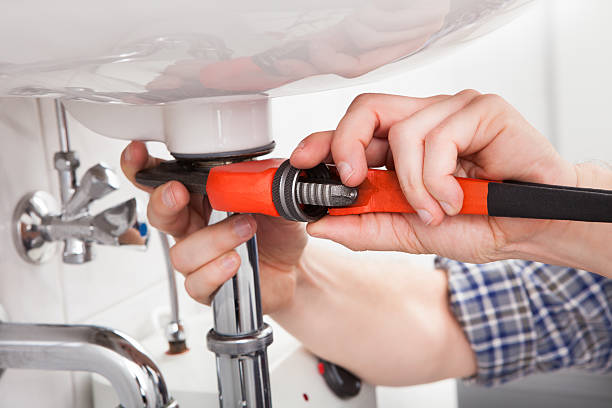

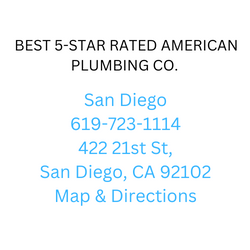
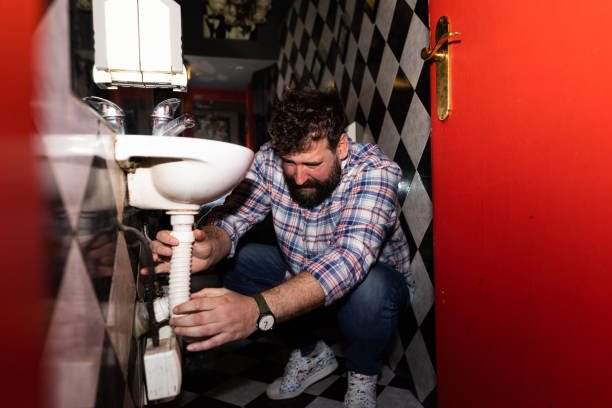



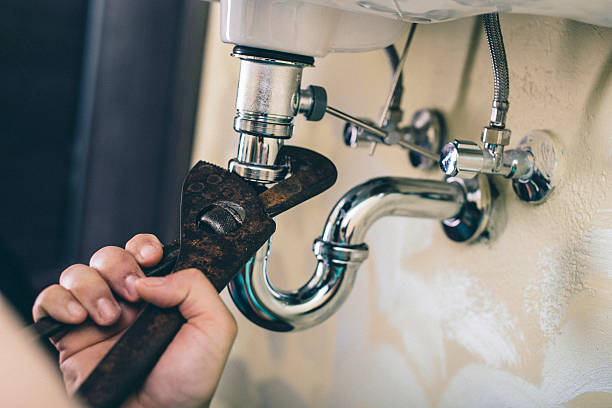

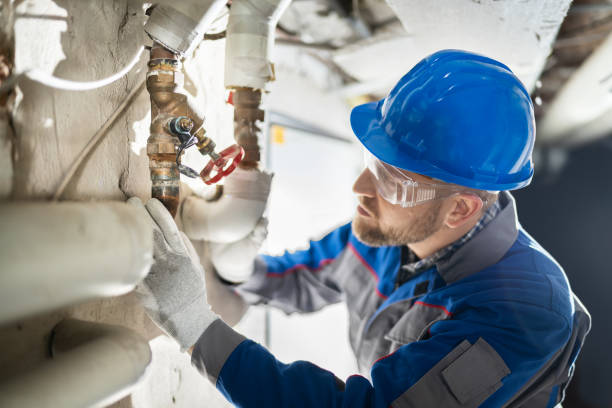
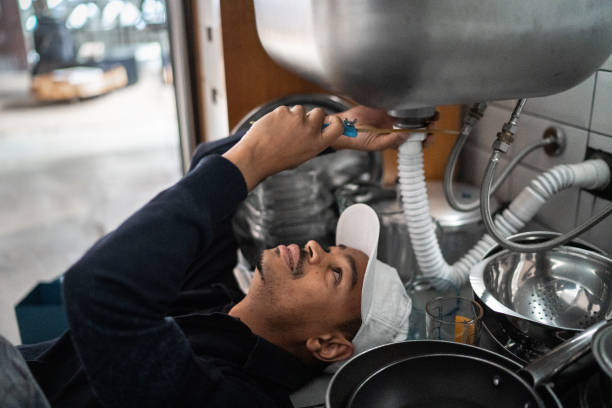
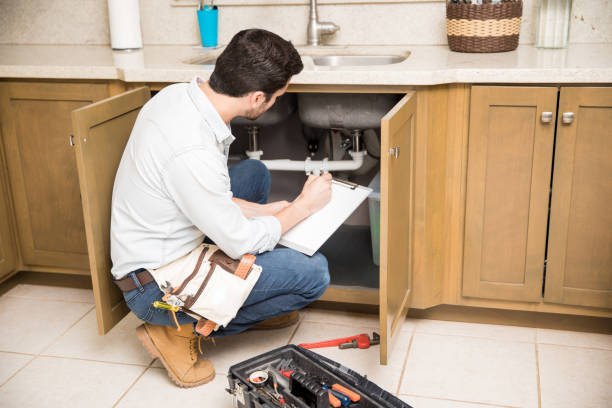
 RSS Feed
RSS Feed